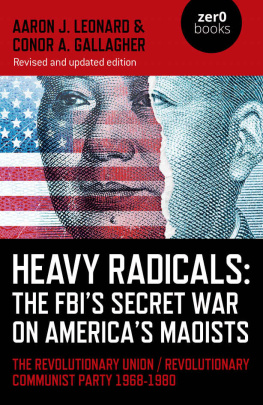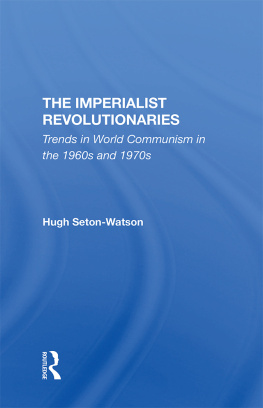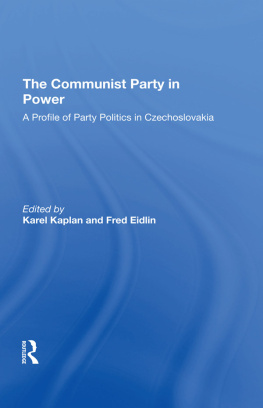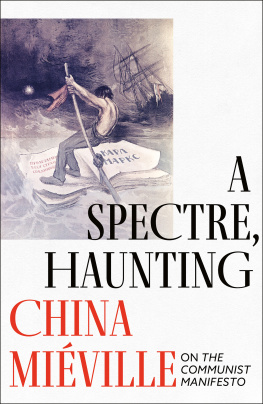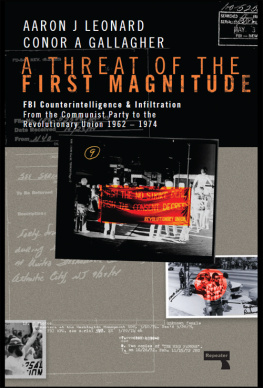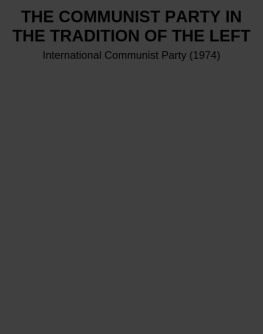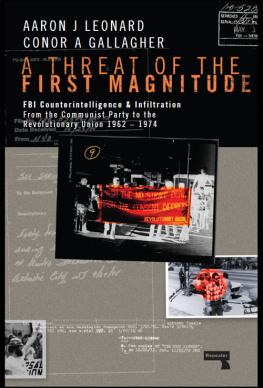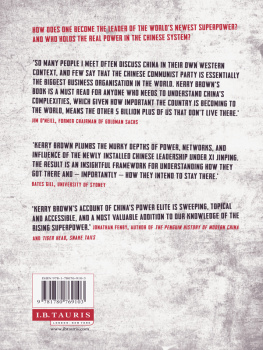Central Committee of the Communist Party of India (Maoist) - China: A Modern Social-Imperialist Power
Here you can read online Central Committee of the Communist Party of India (Maoist) - China: A Modern Social-Imperialist Power full text of the book (entire story) in english for free. Download pdf and epub, get meaning, cover and reviews about this ebook. year: 2017, publisher: Revolutionary Anti-Imperialist Movement, genre: Politics. Description of the work, (preface) as well as reviews are available. Best literature library LitArk.com created for fans of good reading and offers a wide selection of genres:
Romance novel
Science fiction
Adventure
Detective
Science
History
Home and family
Prose
Art
Politics
Computer
Non-fiction
Religion
Business
Children
Humor
Choose a favorite category and find really read worthwhile books. Enjoy immersion in the world of imagination, feel the emotions of the characters or learn something new for yourself, make an fascinating discovery.

- Book:China: A Modern Social-Imperialist Power
- Author:
- Publisher:Revolutionary Anti-Imperialist Movement
- Genre:
- Year:2017
- Rating:5 / 5
- Favourites:Add to favourites
- Your mark:
- 100
- 1
- 2
- 3
- 4
- 5
China: A Modern Social-Imperialist Power: summary, description and annotation
We offer to read an annotation, description, summary or preface (depends on what the author of the book "China: A Modern Social-Imperialist Power" wrote himself). If you haven't found the necessary information about the book — write in the comments, we will try to find it.
China: A Modern Social-Imperialist Power — read online for free the complete book (whole text) full work
Below is the text of the book, divided by pages. System saving the place of the last page read, allows you to conveniently read the book "China: A Modern Social-Imperialist Power" online for free, without having to search again every time where you left off. Put a bookmark, and you can go to the page where you finished reading at any time.
Font size:
Interval:
Bookmark:
An Integral Part of the Capitalist-Imperialist System
Originally Translated and Published by the RevolutionaryAnti-Imperialist Movement, September 2018
http://anti-imperialism.orghttp://revaim.org
This EPUB created by /read/
In May of 2017, the Central Committee of the Communist Party of India(Maoist) initiated a study posing the question of whether China had orhad not become a new imperialist power. The resulting report answersin the affirmative: In the view of the CPI(Maoist), the PeoplesRepublic of China has become a social-imperialist power. Further, theChinese Communist Party, and its ideology of Socialism with ChineseCharacteristics deceives and misleads socialists the world over,rejecting internationalism and revolution for a suite of revisionistjustifications upholding and furthering the bourgeois dictatorship inChina. The CPI(Maoist) calls on the CCP to abandon its currentcapitalist-imperialist trajectory, and for progressive comrades withinthe party to initiate struggle against the imperialist and monopolycapitalist ruling clique. Among the hallmarks of Chinesesocial-imperialism, the CPI(Maoist) identifies capital export,financialization, deployment of troops and advisors, rapid armamentand weapon sales, interference in the affairs of small nations andnational liberation struggles, big-power chauvinism, support for freetrade and globalization, and inter-imperialist rivalry. This lastthreatens to bloom into all-out wars of redivision as the westernimperialists attempt to retain their flagging positions and expandtheir spheres of domination.
We do not take this question lightly. On the one hand, China is anation whose working class is oppressed and parasitized by westernimperialism, and the western powers would give anything to reverse itsdevelopment and neutralize the threat it poses to their current andformer spheres of influence. However, we cannot ignore the principledcriticism of long-established and inspirational parties like theCPP-NPA-NDF, or the CPI(Maoist) when they decry Chinesesocial-imperialism. We do not ignore revolts by Papuan villagers whostorm Chinese-owned nickel-mines, or when Zambian workers rise up andmurder their Chinese bosses, or when said bosses shoot and kill theirstriking Zambian workers. Nor can one easily ignore targeted killingsin Balochistan by insurgents who purport to fight the colonization ofBalochistan by Chinese corporations. No one could have missed thestunning turnaround experienced by the Sri Lankan government, fromnear-defeat to victory, in the war to suppress the Tamil nationalliberation movement. This turnaround was largely due to Chinasmilitary and financial aid. For the sake of its oil supply and futureaccess to the Indian Ocean, the PRC joins the reactionary andexpansionist Modi government in India in its support for formerwestern puppet Aung San Suu Kyi and the Myanmar militarys ethniccleansing of Rohingya.
Wars of redivision are just over the horizon, and at least in thatregard the tasks of the small anti-im- perialist movement based in thecore countries has not and will not change. But as for the advent ofrising imperialisms, we gain nothing by lying about the way the worldtruly is, and on that note, we thank the CPI(Maoist) for providingthis report as a starting point for an investigation of the nature ofChinese social-imperialism, that a greater understanding of thebalance of powers and the coming crisis might be reached.
We would also like to thank the comrades who translated the document,MIM1 comrades for giving feedback, and especially LOOP2 comrades forimportant edits. We hope the present piece is put to good use.
The Revolutionary Anti-Imperialist Movement has undertaken thistranslation to better understand the position of one of the worldsforemost communist parties and to make it available to other comradesin English. It is unofficial and imperfect. Its quotations and dataare, with a few very minor exceptions, checked against easilyavailable sources. The footnotes in the original were for anon-western audience (clarifying what Wall Street is etc.) and wereremoved for brevity. All sums and statistics are rendered in westernunits from the Indian numbering system and may contain minor errors.Previously phonetically spelled names have been rendered in theircommon English variants, and the entire document has been edited forlength while retaining the meaning of the text.
We have been made aware of a purported English translation appearingin the days preceding publication of this version. We welcome manyeyes on this question, and if the purported translation is official,we defer to it.
Revolutionary Anti-Imperialist Movement
September 2018
If you come across any spelling or translation errors, please contactus at .
(1) MIM: http://prisoncensorship.info/ (2) Org4LOOP:https://fight4loop.org/
In its 9th Congress held in January 2017, the United Congress of theCommunist Party of India (Maoist) (CPI-Maoist) decided to conduct aspecial study on emerging trends in social, economic, political, andcultural changes with regard to strategy toward capitalist-revisionistChina. The Central Committee was authorised to execute this decision.As per the decision taken by the Central Committee during its 4thConference, it considered mainly two things: the trends within China,and whether China has become a social-imperialist power. These weretheir two study points. After investigating, the Central Committeeadopted the following thesis at its 5th Conference: Today China hasbecome a modern social-imperialist power, an integral part of thecapitalist-imperialist world system, while also playing the role ofantagonist towards the oppressed classes and people in general.
The Marxist-Leninist-Maoist parties, groups and powers are insolidarity with the worker-peasant, suppressed, and other oppressedclasses of society with the objective of world socialist revolution,marching toward a creative struggle to win over antagonisticimperialist China and end its conceptions of revisionism,social-imperialism, and obscurantism. Our two communist parties havetwo global responsibilities: to support the working class and tosupport its revolution. To accomplish these tasks, thesocial-imperialist nature of China must be exposed thoroughly. We mustunderstand the process by which China transformed into a major andcompetent imperialist state among the imperialist nations of theworld. We must also succeed in the process of segregating globalalliances and enmities in accordance with the principles ofinternational class divisions. We must evaluate ever-changingstructural variations and their specific conditions prevailing in theworld. Unless we study these aspects, we cannot understand modernwars, the politics of modern revisionists, and the incidentalvariations in the imperialist system.
Leninism holds that imperialism is the highest stage of capitalism it is war, it is moribund. Imperialism affirms the rise of thesocialist movement, and the 20th century has proven this. The Leninisttheory of imperialism applies even today. War is the supreme tool bywhich imperialism divides and reorganises the world for its vestedinterests. Imperialism indulges in war for the sake of its monopoly onthe world. It principally gains through war. Wars are inevitable solong as imperialism exists in the world. It penetrates intounderdeveloped nations in the guise of neo-colonialism to continue itsobsessive compulsion for loot. It sucks the blood of the common peopleand the oppressed, and it is the cause of their extreme misery anddistress. Modern wars are the result of imperialism, said Lenin,time and time again. The two world wars in first half of the 20thcentury broke out among the imperialist countries as a contest to gainsupremacy over the world by dividing and reorganising it. The attemptto escape the new political and economic crises of the imperialistcountries led to the last two world wars, said Mao.
Font size:
Interval:
Bookmark:
Similar books «China: A Modern Social-Imperialist Power»
Look at similar books to China: A Modern Social-Imperialist Power. We have selected literature similar in name and meaning in the hope of providing readers with more options to find new, interesting, not yet read works.
Discussion, reviews of the book China: A Modern Social-Imperialist Power and just readers' own opinions. Leave your comments, write what you think about the work, its meaning or the main characters. Specify what exactly you liked and what you didn't like, and why you think so.

